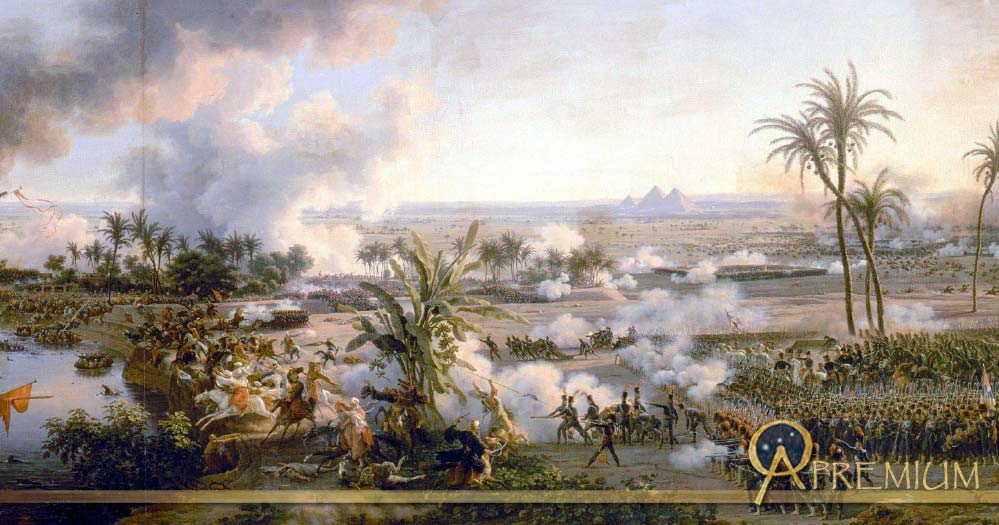The Napoleonic Expedition to Egypt: The Path to Conquest and Glory – Part I
At the end of the 18th century, Great Britain and France were vying to dominate one another by colonizing several territories across the globe. The English were already ahead in this race – but only just. Egypt was a highly-valued land, insofar as its potential to fill the coffers of the French Republic was concerned. In addition, it was strategically located on the trade route to another vital destination, India. The young and ambitious general, Napoleon Bonaparte, decided to go on the offensive and annex Egypt, thereby, attacking the heart of British commerce. With the help of his ally, Tipu Sultan, he planned to overthrow the English in India as well.

The Emperor Napoleon in his study at the Tuileries by Jacques-Louis David (1812). National Gallery of Art. (Public Domain)
Napoleon, the Man of the Hour
In 1798 the British were locked in a fierce war with the French Republic. Both sides displayed deathly determination to not cede an inch to the other. A few years earlier, in 1792, France was in strife because of the bloody French Revolutionary Wars that pitted the French Revolutionary Army against a Coalition of Austria, Russia, Piedmont-Sardinia, and several Italian states. Northern Italy was the main stage of these conflicts that culminated in 1802.
A prominent participant in the wars, General Napoleon Bonaparte was an outstanding commander and a major force to be reckoned with on the battlefield. In only a year, he had triumphed in almost all the battles he led and had stamped his authority in the Italian Peninsula and emerged a war hero in France. Always acutely aware of the threat the British posed to France’s interests, he had written in August 1797: “The time is not far away that we will feel that, in order to truly destroy England, we must take Egypt.”

Napoleon Bonaparte, aged 23, lieutenant-colonel of a battalion of Corsican Republican volunteers. Portrait by Henri Félix Emmanuel Philippoteaux. Palace of Versailles. (Public Domain)
Now, flushed with his spectacular successes in the Italian campaigns, in early 1798 the 28-year old Napoleon proposed to The Directory or Directorate (French: le Directoire), the governing body of France that comprised a five-member committee, that he wished to embark on a campaign against Egypt and make it a French colony.
Like this Preview and want to read on? You can! JOIN US THERE ( with easy, instant access ) and see what you’re missing!! All Premium articles are available in full, with immediate access.
For the price of a cup of coffee, you get this and all the other great benefits at Ancient Origins Premium. And - each time you support AO Premium, you support independent thought and writing.
More upcoming in Part II, an Ancient Origins Premium series by independent researcher and playwright Anand Balaji, author of Sands of Amarna: End of Akhenaten.
Top Image: General view of the Battle of the Pyramids, July 21, 1798. Campaign of Egypt (1798-1801). By Louis-François, Baron Lejeune (1775-1848); design by Anand Balaji (Public Domain); Deriv.
By Anand Balaji

















